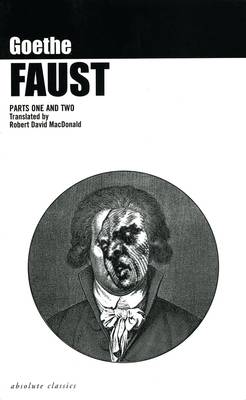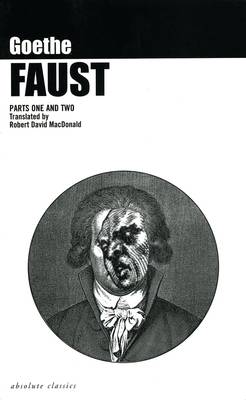
Bedankt voor het vertrouwen het afgelopen jaar! Om jou te bedanken bieden we GRATIS verzending (in België) aan op alles gedurende de hele maand januari.
- Afhalen na 1 uur in een winkel met voorraad
- In januari gratis thuislevering in België
- Ruim aanbod met 7 miljoen producten
Bedankt voor het vertrouwen het afgelopen jaar! Om jou te bedanken bieden we GRATIS verzending (in België) aan op alles gedurende de hele maand januari.
- Afhalen na 1 uur in een winkel met voorraad
- In januari gratis thuislevering in België
- Ruim aanbod met 7 miljoen producten
Zoeken
€ 25,95
+ 51 punten
Uitvoering
Omschrijving
The power and magic of the Faust story, the man who, in a pact with the Devil, trades his soul in return for a period of total knowledge and absolute power, is one of the most potent of all European myths. Johann Wolfgang von Goethe (1749-1832) worked on this poetic drama in bursts from his twenties until the end of his life. He reshaped the perpetually fascinating legend, probing the nature and process of human striving and questioning the assumed divisins between the forces of good and evil. His Faust has become a landmark in world literature.
Robert David MacDonald's translation of Faust, used in acclaimed productions in Scotland (Glasgow Citizens') and England (Lyric Hammersmith), offers access to the play in the English language for readers and playgoers alike and opens up the extraordinary range and pace of Goethe's language, rhythms, imagery and ideas, without sacrificing any of the play's humour. The Open University has adopted the translation as a set book for the course entitled 'From Enlightenment to Romanticism'.
Robert David MacDonald's translation of Faust, used in acclaimed productions in Scotland (Glasgow Citizens') and England (Lyric Hammersmith), offers access to the play in the English language for readers and playgoers alike and opens up the extraordinary range and pace of Goethe's language, rhythms, imagery and ideas, without sacrificing any of the play's humour. The Open University has adopted the translation as a set book for the course entitled 'From Enlightenment to Romanticism'.
Specificaties
Betrokkenen
- Auteur(s):
- Vertaler(s):
- Uitgeverij:
Inhoud
- Aantal bladzijden:
- 232
- Taal:
- Engels
- Reeks:
Eigenschappen
- Productcode (EAN):
- 9781870259118
- Verschijningsdatum:
- 1/01/1998
- Uitvoering:
- Paperback
- Formaat:
- Trade paperback (VS)
- Afmetingen:
- 147 mm x 210 mm
- Gewicht:
- 308 g

Alleen bij Standaard Boekhandel
+ 51 punten op je klantenkaart van Standaard Boekhandel
Beoordelingen
We publiceren alleen reviews die voldoen aan de voorwaarden voor reviews. Bekijk onze voorwaarden voor reviews.









